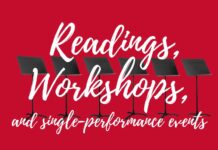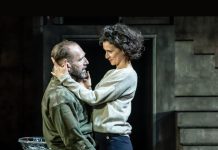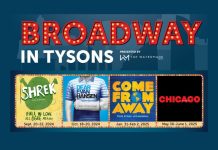Seeing The Return – the stunning new play that has just burst upon the stage at Mosaic Theater Company of DC – is like watching fireworks up close.
In fact, the heat from this drama is so intense that it threatens to consume its audience, which is seated like spectators at a tennis match, on both sides of the stage. Viewers can’t help but cringe as weaponized words are hurled in both directions.
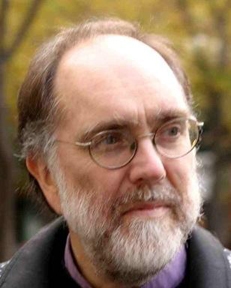
The play, which marks the conclusion of this year’s Voices From a Changing Middle East Festival, is about two people who confront each other at an auto repair shop in Israel.
One of the characters–a man who calls himself Yakov but who may be Avi–is caught up in a Kafka-esque nightmare that appears, at first, to be paranoia. Trapped in a bureaucracy that is both irrational and indefensible, he is stripped of identity and forced to assume a persona that is unrecognizable, even to him.
The other character, who may be Dahlia, is similarly transformed, from sophisticated and supremely self-confident denizen of the privileged class to someone who’s dug her own hole and must lie in it.
Written by Hanna Eady and Edward Mast, Seattle-based playwrights who have worked together for more than 20 years, The Return is a masterful portrayal of a conflict that continues to overwhelm people’s lives.
I caught up with the playwrights a few days before the opening. Although they were eager to talk about events leading up to the play, they were conspicuously silent about the plot itself.
(“Tell your readers that they have to see it,” they said. I agreed! )
Ravelle: When did you write The Return and where was it first produced?
Ed: We wrote the play five years ago, in English. But we wanted to have the world premiere in Israel, so Hanna translated it into Hebrew. It opened in 2014 in Haifa and was performed before a mixed audience, at an Arab theater called Al-Midan.
Hanna: The play was shut down after just eight performances. It was a riveting experience for all of us involved. There were two Supreme Court decisions in favor of keeping the play open, but the authorities–the Israeli Ministry of Culture and Education–kept it closed.
What got the play banned?
Hanna: Some people objected to the mixed audience, and to the fact that the play was in Hebrew. The government simply decided that Jews should not see or hear anything that expressed a Palestinian point of view, or that suggested an abrogation of human rights.
The play is not about violence but about day-to-day interactions, which may be more dangerous.
The dialogue in The Return is wonderful–strong and clear. It’s natural without being literal. It’s not ‘Pinteresque,’ as in brusque or repetitive, but sharp and taut. Is that because you’re both actors?
Ed: Absolutely. As actors, we think in terms of performance, not reading. Our experience, on stage and off, informs everything we do. We see everything from the actors’ point of view. So yes, everything is spare, and intense.
Hanna: In addition to being an actor, I have a graduate degree in directing. And that helps me to understand that the less you say, the more you mean. Every beat, every pause, is meaningful
Ed: I’ve written and performed in a a lot of children’s plays, and that’s another way I’ve learned to keep it short. Children can be very unforgiving. They see no need to be polite. (I’ve actually seen kids at the Kennedy Center who threw pebbles when they were bored!)
In a way, The Return is a sequel–some 20 years later–to your first collaboration, called Suhmata: Memory of Stones. Tell us about that.
Ed: We based Suhmata on interviews with refugees from a village in Galilee that had been destroyed in 1948.
The play was first produced at the New Image Theater Company in Seattle in 1996. Two years later, Hanna translated it into Arabic, and we produced it on the site where the village itself had stood. It’s been on tour throughout the region ever since.
Aha! That means that the male character in The Return could well be a descendant of someone from Suhmata. Hanna, you grew up in a similar place. What was it like?
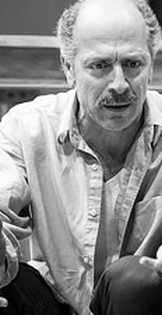
Hanna: My village was also located in the northern Galilee. Life was simple and peaceful. People of all faiths–Muslims, Jews, Christians and Druse –lived side by side.
We had no electricity or water, but we had a real theater, out in the open in the town square. People climbed up to the rooftops and balconies to watch performances. I was one of the actors.
Ravelle: What led you to leave?
Hanna: I left the village to attend the University of Haifa, where I became active in the Arab-Jewish Center and its theater company. When I found that our scripts had been censored, I tried to restore the cuts. That was 1980, a turning point for me. I was fired and fled to the US.
Ed, where are you from?
Ed: I grew up in Los Angeles, in a “loosely Christian” household–meaning we were not church-going types–and went to UCLA, then moved to Seattle when I was in my 20s.
I knew nothing about the middle east until I was 40 years old and met Hanna.
You’ve both been active in the Seattle theater world. What are some of the things you’ve done apart from collaborating?
Hanna: I opened the New Image Theater Company in the 1980s. My first big success was Seeing Double: A Middle Eastern Comedy of Errors, which I produced in 1991, right at the beginning of the first Gulf War. At the time, most Americans knew nothing about the conflict in the Middle East. To my astonishment, the play sold out, had an extended run and then reopened.
(And it’s still going strong: the play, which I wrote originally for the San Francisco Mime Troupe, had a staged reading at Mosaic last week!)
Ed: I’m a member of Credible Threat, a group of theater professionals dedicated to exploring social issues through the stage. Last year, they mounted my adaptation of a Bertolt Brecht play called Saint Joan of the Stockyards.
And now you’re collaborating on a new play?
Ed and Hanna (in unison): Yes! It’s called The Mulberry Tree, and it just had its first professional reading at Look Change Productions in New York.
Congratulations! We look forward to seeing it when it gets to DC. But right now, readers of DCMetroTheaterArts are urged to make haste to see The Return before it departs from the District.
Running Time: 75 minutes, with no intermission.
The Return plays through July 2, 2017, at Mosaic Theater Company of DC performing at the Atlas Performing Arts Center – 1333 H Street NE, in Washington, DC. For tickets, call the box office at (202) 399-7993 ext. 2, or purchase them online.
LINK:
Review of The Return by Robert Michael Oliver.


